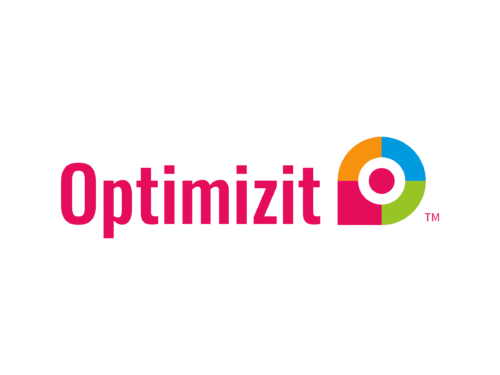As 2025 unfolds, the digital marketing landscape continues to evolve rapidly, driven by technological advancements and changing consumer expectations. Staying ahead of these trends is crucial for businesses looking to maintain a competitive edge. This year, several key trends are shaping how brands connect with their audiences and deliver value in innovative ways.
Video content remains a powerful tool for engagement, particularly because of its ability to captivate audiences through dynamic storytelling. As data privacy becomes more important, businesses must also innovate in their approach to data usage, ensuring they build and maintain trust with their customers. Embracing these changes can position brands for success, helping them to connect more deeply and effectively with their target audiences.
Embracing Artificial Intelligence in Marketing
Artificial Intelligence (AI) is transforming how brands interact with customers by making experiences more personalized and efficient. AI technology analyzes customer behaviors and preferences to predict what products or services they might be interested in. This personalization leads to more meaningful interactions where consumers feel understood and valued. With AI, marketing campaigns can be tailored to individual users, increasing the relevance and engagement levels significantly.
Several AI tools are making waves in digital marketing. Chatbots, for example, are used to provide instant assistance to customers, answering queries around the clock without human intervention. They boost customer satisfaction by being available anytime, anywhere. Predictive analytics is another powerful tool, allowing marketers to forecast trends and customer behaviors, optimizing campaigns for better results. Additionally, AI-driven content creation tools can generate content based on specific guidelines and audience preferences, saving time while maintaining quality.
Using AI in these ways not only boosts efficiency but also allows businesses to respond more dynamically to market changes. As AI continues to evolve, its applications in marketing will likely expand, offering even more opportunities for tailored, consumer-centered strategies. This trend is essential for businesses looking to stay ahead and connect deeply with their audiences.
The Rise of Voice Search Optimization
Voice search is becoming a vital part of how users access information, reshaping the landscape of SEO. As more consumers use devices like smartphones and smart speakers to search for information using their voice, businesses must adapt their content strategies accordingly. Voice search queries tend to be longer and more conversational compared to typed searches, meaning that SEO practices need to reflect this shift.
One key impact of voice search on SEO is the emphasis on natural language. Content that answers direct questions in a clear manner is more likely to rank well in voice search results. Additionally, local businesses can especially benefit from optimizing for voice search, as users often look for nearby services through such queries.
Here are some tips for optimizing content for voice search:
1. Use Conversational Language: Write your content as if you’re speaking to someone directly. This makes it easier for voice recognition tools to match your content with user queries.
2. Focus on Long-Tail Keywords: Incorporate phrases that mimic natural speech patterns, as these are more representative of voice search queries.
3. Optimize for Local SEO: Include location-based keywords, as voice searches often include terms like “near me” for local results.
4. Create FAQ Pages: Answer common questions related to your industry or services, which aligns well with how people typically use voice search.
Leveraging Video Content for Engagement
Video content continues to dominate as a key medium for digital engagement, capturing attention more effectively than static images or text. Short-form videos and live streaming have become particularly influential, catering to today’s fast-paced consumer habits. These formats are perfect for delivering quick, impactful messages that resonate with audiences.
Short-form videos, typically under a minute, are ideal for platforms like TikTok, Instagram Reels, and YouTube Shorts. They allow brands to convey messages succinctly and creatively, engaging viewers who might not have the time or inclination to watch longer content. Live streaming, on the other hand, creates real-time interaction, making viewers feel part of an evolving narrative. It’s perfect for product launches, Q&A sessions, or behind-the-scenes peeks.
To integrate video effectively into your marketing plan, consider these strategies:
1. Know Your Audience: Tailor video content to match your audience’s preferences and viewing habits.
2. Invest in Quality Production: High-quality visuals and sound can make a significant difference in audience retention.
3. Tell a Story: Engage viewers with storytelling elements to make your videos memorable and impactful.
4. Utilize Multiple Platforms: Distribute video content across various channels to maximize reach.
The Role of Data Privacy in Brand Trust
Data privacy is a crucial component in building and maintaining brand trust. As consumers become more aware of data collection practices, they expect transparency and ethical use of their personal information. Brands that prioritize these aspects can foster deeper trust and customer loyalty.
Consumer expectations about data privacy are high. They want to know what data is being collected, how it’s used, and who has access to it. This demand for transparency compels businesses to adapt their data strategies to be more open and communicative. Meeting these expectations can set a brand apart as trustworthy and responsible.
To ensure ethical data usage and maintain trust, businesses can:
1. Implement Clear Privacy Policies: Clearly outline privacy practices and make this information easily accessible to customers.
2. Collect Only What’s Necessary: Limit data collection to what is essential for service delivery.
3. Provide Control to Consumers: Allow users to manage their data preferences, including opting out of certain data collection.
4. Stay Compliant with Regulations: Adhere to local and global data protection laws, demonstrating a commitment to ethical practices.
Conclusion
The digital marketing landscape in 2025 is all about adaptability and foresight. By embracing AI, optimizing for voice search, leveraging video content, and upholding stringent data privacy standards, businesses can stay ahead of the curve. These elements not only enhance marketing strategies but also align with wider consumer expectations.
Optimizit is here to help your business harness these trends effectively. From employing AI-driven solutions to creating engaging video content, we offer a range of services to boost your brand’s online presence. Trust us to guide you through the evolving digital landscape, ensuring your digital content marketing strategy is current and impactful. Start your journey with Optimizit and make your mark in the digital world.

